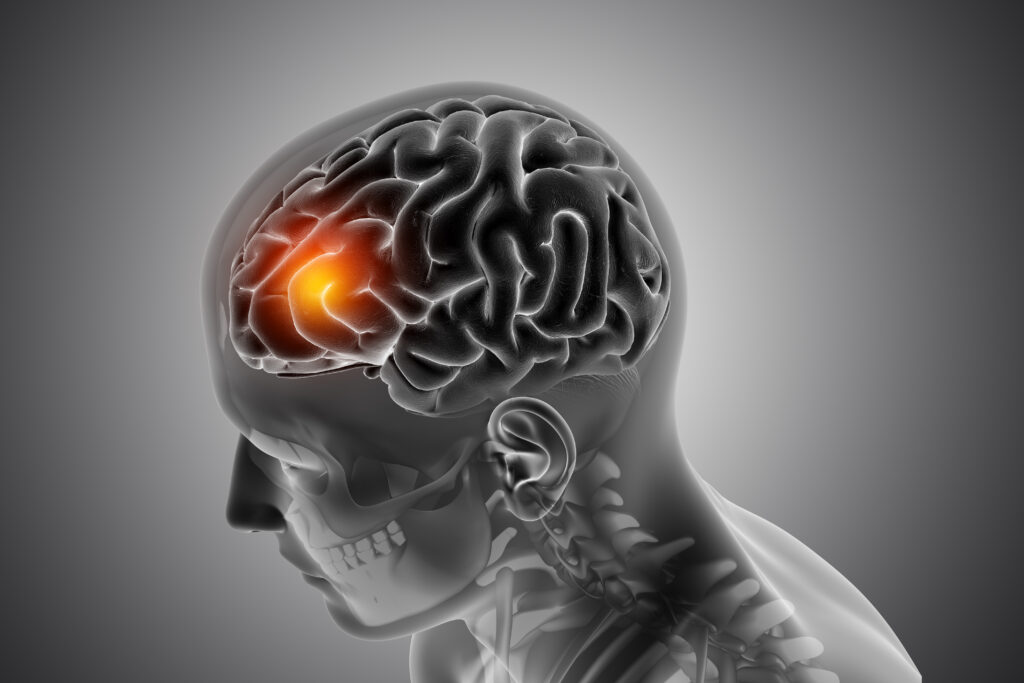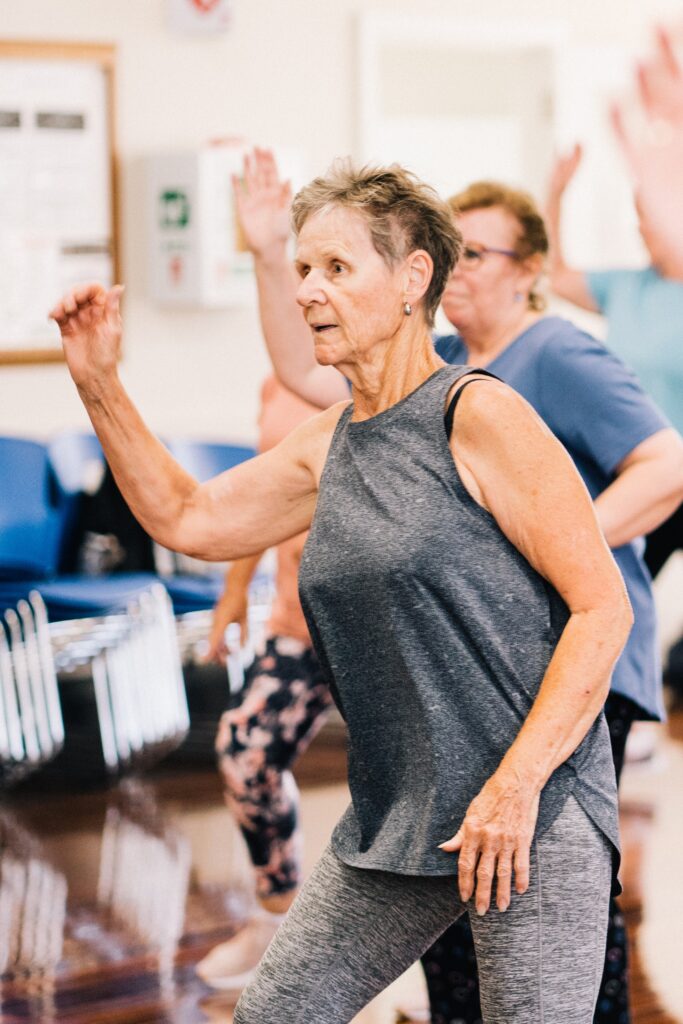Cognitive Exercises for Seniors to Improve Brain Health: Unlocking Mental Vitality
Contents
- 1 Cognitive Exercises for Seniors to Improve Brain Health: Unlocking Mental Vitality
- 1.1 Introduction
- 1.2 Table of Contents
- 1.3 Understanding Cognitive Health
- 1.4 The Power of Cognitive Exercises
- 1.5 Choosing the Right Exercises for You
- 1.6 Memory Enhancement Techniques
- 1.7 Problem-Solving Prowess: Brain Teasers and Puzzles
- 1.8 Embracing Creativity: Artistic and Musical Pursuits
- 1.9 Staying Socially Engaged
- 1.10 Physical Activity’s Impact on Cognitive Health
- 1.11 Mindful Meditation and Relaxation
- 1.12 Nutrition for Brain Health
- 1.13 Technology and Brain Training Apps
- 1.14 Incorporating Cognitive Exercises into Daily Life
- 1.15 Adapting Exercises for Different Abilities
- 1.16 The Role of Sleep in Cognitive Wellness
- 1.17 Tracking Progress and Celebrating Achievements
- 1.18 Scientific Insights on Cognitive Exercise Efficacy
- 1.19 Real-Life Success Stories
- 1.20 Common Myths about Aging and Brain Health
- 1.20.0.1 Heart-Healthy Eating for Seniors Tips
- 1.20.0.2 Common Heart Conditions in Old Age and Their Treatments
- 1.20.0.3 Cardiac Rehabilitation for Elderly Patients
- 1.20.0.4 Osteoporosis Prevention in Seniors
- 1.20.0.5 Understanding Arthritis: A Comprehensive Guide to Joint Health
- 1.20.0.6 Managing Arthritis Pain in Seniors
- 1.20.0.7 Exercise Tips for Maintaining Strong Bones in Old Age
- 1.20.0.8 Age-Related Changes in Bone Density and Structure
- 1.21 Addressing Concerns: FAQs on Cognitive Exercises for Seniors
- 1.22 Expert Recommendations: Promoting Lifelong Brain Health
- 1.23 Seniors’ Testimonials: A Glimpse into Their Experiences
- 1.24 The Intersection of Physical and Mental Fitness
- 1.25 Creating Supportive Environments for Cognitive Well-being
- 1.26 Staying Curious: Lifelong Learning and Exploration
- 1.27 Future Horizons: Advances in Brain Health Research
- 1.28
- 1.29 Conclusion
Enhance brain health in seniors with engaging cognitive exercises. Explore memory enhancement techniques, brain teasers, creative activities, and more to improve mental agility and overall cognitive wellness

Introduction
As we age, maintaining brain health becomes increasingly vital. Cognitive exercises offer seniors a proactive way to boost brain function, memory retention, and overall mental vitality. In this comprehensive guide, we’ll explore a diverse range of cognitive exercises tailored for seniors, supported by research and real-world experiences.
Table of Contents
1. Understanding Cognitive Health
2. The Power of Cognitive Exercises
3. Choosing the Right Exercises for You
4. Memory Enhancement Techniques
5. Problem-Solving Prowess: Brain Teasers and Puzzles
6. Embracing Creativity: Artistic and Musical Pursuits
7. Staying Socially Engaged
8. Physical Activity’s Impact on Cognitive Health
9. Mindful Meditation and Relaxation
10. Nutrition for Brain Health
11. Technology and Brain Training Apps
12. Incorporating Cognitive Exercises into Daily Life
13. Adapting Exercises for Different Abilities
14. The Role of Sleep in Cognitive Wellness
15. Tracking Progress and Celebrating Achievements
16. Scientific Insights on Cognitive Exercise Efficacy
17. Real-Life Success Stories
18. Common Myths about Aging and Brain Health
19. Addressing Concerns: FAQs on Cognitive Exercises for Seniors
20. Expert Recommendations: Promoting Lifelong Brain Health
21. Seniors’ Testimonials: A Glimpse into Their Experiences
22. The Intersection of Physical and Mental Fitness
23. Creating Supportive Environments for Cognitive Well-being
24. Staying Curious: Lifelong Learning and Exploration
25. Future Horizons: Advances in Brain Health Research

Understanding Cognitive Health
Cognitive health encompasses memory, thinking abilities, problem-solving skills, and the overall sharpness of the mind. Seniors often seek ways to maintain cognitive well-being and reduce the risk of age-related decline.
The Power of Cognitive Exercises
Engaging in regular cognitive exercises can significantly impact brain health. Research suggests that these exercises stimulate neural pathways, enhance memory retention, and foster neuroplasticity, which is the brain’s ability to adapt and rewire itself.
Choosing the Right Exercises for You
Not all cognitive exercises are equal. It’s essential to select exercises that align with your interests, abilities, and goals. From traditional puzzles to technology-driven brain training apps, there’s a wide variety to choose from.

Memory Enhancement Techniques
Improving memory is a common goal. Techniques like visualization, association, and mnemonic devices can aid memory retention and recall.
Brain teasers and puzzles challenge the mind, enhancing critical thinking and problem-solving abilities. Crossword puzzles, Sudoku, and logic games are excellent choices.
Embracing Creativity: Artistic and Musical Pursuits
Engaging in creative activities like painting, playing musical instruments, or writing stimulates different areas of the brain and nurtures emotional expression.
Staying Socially Engaged
Social interaction is a powerful cognitive exercise. Engaging in conversations, participating in clubs, and connecting with loved ones foster mental agility.
Physical Activity’s Impact on Cognitive Health
Physical exercise isn’t just beneficial for the body; it also positively influences brain health. Activities like walking, yoga, and dancing boost blood flow to the brain.

Mindful Meditation and Relaxation
Practicing mindfulness and relaxation techniques can reduce stress and anxiety, promoting a calm and focused mind.
Nutrition for Brain Health
A balanced diet rich in antioxidants, omega-3 fatty acids, and nutrients supports brain health. Foods like berries, fatty fish, and leafy greens are brain-boosting choices.
Technology and Brain Training Apps
Digital tools offer convenient ways to engage in cognitive exercises. Brain training apps provide a structured approach to mental workouts.
Incorporating Cognitive Exercises into Daily Life
Consistency is key. Integrate cognitive exercises into your daily routine to make them a habit.

Adapting Exercises for Different Abilities
Cognitive exercises can be adapted to suit various abilities. Personalize exercises to match your comfort level and challenge yourself gradually.
The Role of Sleep in Cognitive Wellness
Adequate sleep is essential for cognitive health. Quality rest supports memory consolidation and overall brain function.
Tracking Progress and Celebrating Achievements
Keep track of your cognitive exercise journey and celebrate milestones along the way. Progress can be motivating and fulfilling.
Scientific Insights on Cognitive Exercise Efficacy
Research showcases the positive effects of cognitive exercises on brain health. Studies highlight improved memory, attention, and problem-solving skills.
Real-Life Success Stories
Discover inspiring stories of seniors who have reaped the benefits of consistent cognitive exercise. Their experiences showcase the potential for improved mental agility.
Common Myths about Aging and Brain Health
Dispelling misconceptions about aging and cognitive decline is essential. Many seniors continue to thrive mentally and emotionally.
Read more about
Heart-Healthy Eating for Seniors Tips
Common Heart Conditions in Old Age and Their Treatments
Cardiac Rehabilitation for Elderly Patients
Osteoporosis Prevention in Seniors
Understanding Arthritis: A Comprehensive Guide to Joint Health
Managing Arthritis Pain in Seniors
Exercise Tips for Maintaining Strong Bones in Old Age
Age-Related Changes in Bone Density and Structure
Addressing Concerns: FAQs on Cognitive Exercises for Seniors
1. Can cognitive exercises prevent cognitive decline
Absolutely! Regular cognitive exercise can contribute to maintaining brain health.
2. Do I need any special equipment for these exercises?
Most exercises require minimal or no equipment. Many can be done using pen and paper or with digital devices.
3. Can cognitive exercises be fun and enjoyable?
Absolutely! Cognitive exercises come in various formats, from games to creative pursuits.
4. Are there exercises suitable for people with limited mobility?
Yes, there are seated exercises and activities designed for individuals with limited mobility.
5. Can I see immediate results from cognitive exercises?
While some benefits may be noticeable early on, consistent practice yields more substantial and lasting results.
6. How can I stay motivated to do these exercises regularly?
Setting goals, tracking progress, and incorporating exercises into your routine can enhance motivation.
Expert Recommendations: Promoting Lifelong Brain Health
Experts recommend a holistic approach to brain health. This includes cognitive exercises, a healthy diet, physical activity, social engagement, and mindfulness.
Seniors’ Testimonials: A Glimpse into Their Experiences
Seniors share their personal experiences with cognitive exercises, shedding light on the positive impact these activities have had on their lives.
The Intersection of Physical and Mental Fitness
Physical health and brain health are interconnected. Engaging in activities that promote both enhances overall well-being.
Creating Supportive Environments for Cognitive Well-being
Supportive environments at home and in the community encourage cognitive engagement. Cultivating curiosity and exploration is key.
Staying Curious: Lifelong Learning and Exploration
Never stop learning. Exploring new hobbies, learning languages, and delving into unfamiliar subjects challenge the mind and foster growth.
Future Horizons: Advances in Brain Health Research
The field of brain health research continues to evolve. Discover the latest advancements and potential breakthroughs.
Conclusion
Elevating brain health through cognitive exercises is a proactive step towards aging gracefully and maintaining mental vitality. With dedication and a sense of curiosity, seniors can unlock the potential of their minds and embrace a fulfilling journey of cognitive well-being.

I like this website very much, Its a real nice
post to read and receive information..
Hey! I simply want to give an enormous thumbs up for the good information you will have here on this post. I can be coming again to your blog for more soon.
We absolutely love your blog and find many of your post’s to be exactly I’m looking for. Does one offer guest writers to write content available for you? I wouldn’t mind creating a post or elaborating on a few of the subjects you write about here. Again, awesome web site!
Good web site! I truly love how it is easy on my eyes and the data are well written. I am wondering how I could be notified whenever a new post has been made. I’ve subscribed to your RSS which must do the trick! Have a nice day!
Hey there would you mind sharing which blog platform you’re working with? I’m going to start my own blog in the near future but I’m having a difficult time selecting between BlogEngine/Wordpress/B2evolution and Drupal. The reason I ask is because your design seems different then most blogs and I’m looking for something completely unique. P.S Sorry for getting off-topic but I had to ask!
Thank you, your article surprised me, there is such an excellent point of view. Thank you for sharing, I learned a lot.
Can you be more specific about the content of your article? After reading it, I still have some doubts. Hope you can help me.
Thanks for sharing. I read many of your blog posts, cool, your blog is very good.
Thank you for your sharing. I am worried that I lack creative ideas. It is your article that makes me full of hope. Thank you. But, I have a question, can you help me?
Can you be more specific about the content of your article? After reading it, I still have some doubts. Hope you can help me. binance registracija
Can you be more specific about the content of your article? After reading it, I still have some doubts. Hope you can help me. labākais binance norādījuma kods
Your point of view caught my eye and was very interesting. Thanks. I have a question for you.
I don’t think the title of your article matches the content lol. Just kidding, mainly because I had some doubts after reading the article.
Thanks for sharing. I read many of your blog posts, cool, your blog is very good. https://www.binance.com/kz/register?ref=K8NFKJBQ